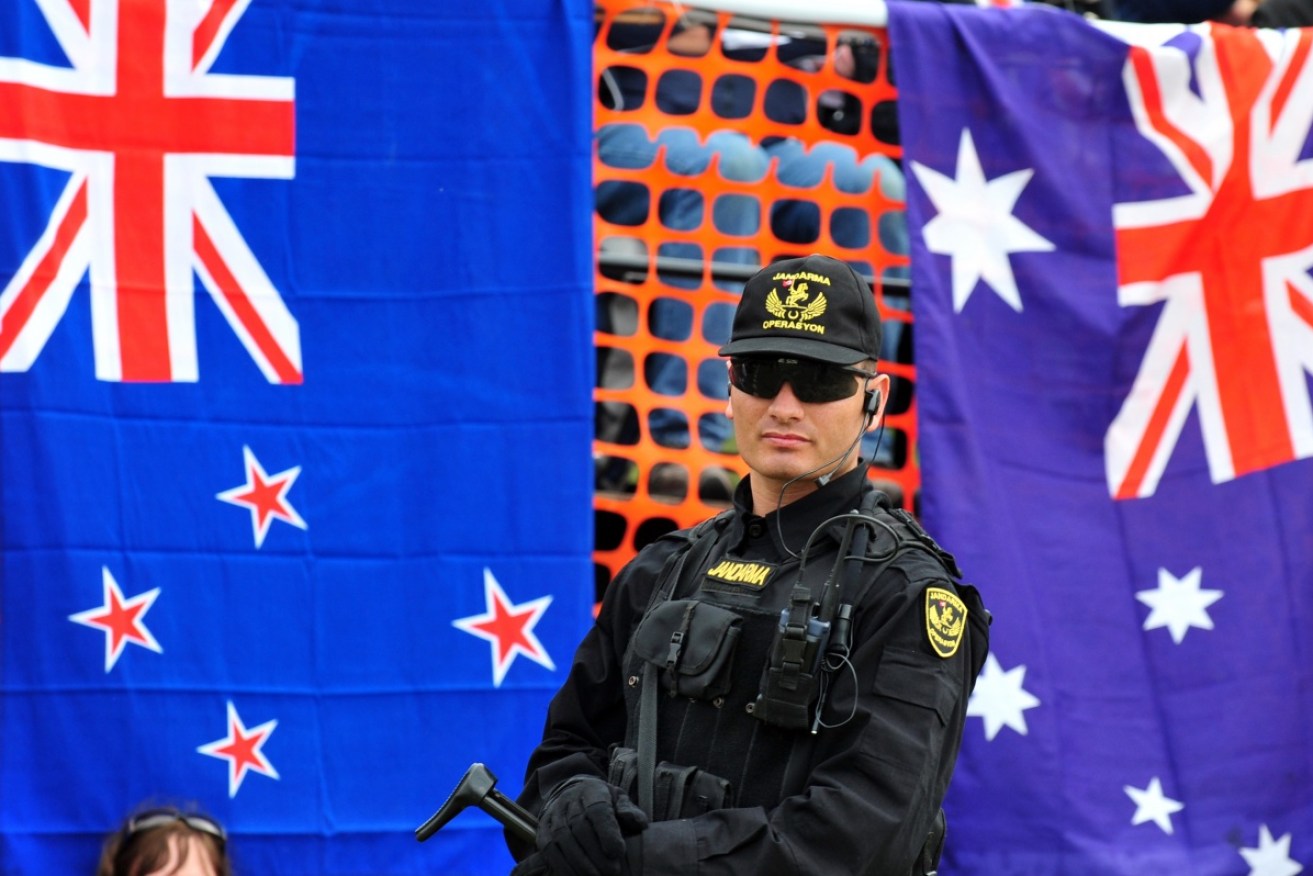Kiwi migrants most resentful towards their adopted country

There are fears for public safety during Anzac Day commemorations. Photo: Getty
New Zealanders who move to Australia report higher levels of discrimination than most other migrant groups and are resentful towards their adopted country, according to a landmark report being released today.
The Australians Today report, based on a survey of more than 10,000 people, found most migrants are very satisfied with their lives in Australia but Kiwis and South Sudanese stand out as the two groups who feel the least sense of belonging and experience the most discrimination.

New Zealanders living in Australia have rallied to raise awareness of discrimination. Photo: Scott Barbour/Getty
The report’s author Professor Andrew Markus said many New Zealanders, who hold Special Category Visas, feel they are given a “harsh deal” in Australia because they can live and work here but are not eligible to vote, receive welfare, or other benefits.
“At one level they should know what they’re getting themselves into because it’s very clearly explained to them,” he said.
“Nonetheless people feel resentment having worked in this country for years, paid their taxes, contributed to the community and then having difficulties and not being able to get Centrelink benefits.
“They also resent the fact that an Australian going to New Zealand does qualify for full citizenship but if you come the other way, you don’t.
Professor Andrew Markus
Prejudice towards South Sudanese
Professor Markus said the level of colour prejudice towards South Sudanese migrants was “off the scale”, with a “disturbing” 80 per cent of respondents saying they had experienced discrimination.

A South Sudanese boy wearing an Australian hat at a Melbourne rally. Photo: William West/AFP/Getty
Both New Zealand and South Sudanese migrants also reported low levels of trust, with Kiwis holding a very little trust in political parties (10 per cent) and the South Sudanese reporting the lowest level of trust in the police (24 per cent) out of any other group.
Tensions recently flared on the streets of Melbourne when about 100 men of African, Islander and Caucasian appearance converged on the Moomba Festival and clashed with police.
Negativity towards Muslim women
The survey, conducted by the Scanlon Foundation and Monash University, found a high level of negativity towards Muslims, with women twice as likely to face discrimination as men.
Professor Markus said one of the most disturbing stories involved a Melbourne tram driver who refused to allow a heavily pregnant woman on board when he looked up and noticed she was wearing Muslim garb.
The Burkini was invented in Australia so observant Muslim women could work as lifeguards https://t.co/qtm0IlIUZn pic.twitter.com/qPtFLMHSZy
— Ben Ward (@Benjamin_P_Ward) August 23, 2016
“The tram stops and she leaves the curb to get onto the tram but the driver sees her and takes off,” he said.
“And as she looks up she sees the other passengers laughing.
“These are the sort of disturbing things that are going on in Australia.”
He said the woman was on her way to hospital for a check up but was so upset by the experience, she went home instead.
Many of the Muslim respondents complained of being stereotyped and misrepresented by the media, who had little interest in actually talking to the community.
Anti-Muslim protestors from far-right group disrupt church service in #Australia. https://t.co/TcsJUMITrY pic.twitter.com/3hO4eh2AqX
— anglicanjournal (@anglicanjournal) August 15, 2016
“The reality of Muslim Australians is that Muslims in Australia are as diverse as the whole Australian population and often I find there’s a lack of understanding that most of the Muslims in Australia are born in this country,” Professor Markus said.

Anti–racism activists march as anti–Islam protestors rally in Melbourne in July 2015. Photo: Getty
Despite the survey results, Professor Markus said Australia is still one of the most successful countries when it comes to integrating migrants but he said there will always be rejection and intolerance.
He said immigration is a difficult process and the survey found migrants are incredibly optimistic about their prospects when they first arrive in Australia but become less so as time passes.
“In the first generation it’s a struggle and in the first generation many find they cannot achieve their dreams, so it’s more a question of the second and third generation and the way they make their way in Australian society,” he said.
– ABC








